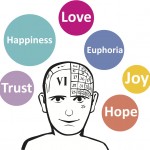
Patrick Kennedy-Williams highlights a recent opinion piece by Pim Cuijpers, which summarises what we know and what we don’t know about the efficacy of psychotherapies for adult depression.
[read the full story...]
Patrick Kennedy-Williams highlights a recent opinion piece by Pim Cuijpers, which summarises what we know and what we don’t know about the efficacy of psychotherapies for adult depression.
[read the full story...]
For his ninth Mental Elf blog, Mark Smith reports on a Cochrane systematic review of the effectiveness of short term psychodynamic therapies on common mental health disorders.
[read the full story...]
Andrew Shepherd appraises a study of the long-term outcomes of psychodynamic therapy and cognitive-behavioral therapy in social anxiety disorder, which finds both therapies are efficacious in treating social anxiety disorder in the short- and long-term.
[read the full story...]
Anorexia nervosa has long been known to have a poor prognosis and few effective treatments are available (Kaplan and Garfinkel, 1999). Research in this area is limited, particularly in regards to evidence-based guidance. The NICE eating disorders guidance (2004) is in need of an update, although there is a more recently produced care pathway. Other [read the full story…]

Childhood sexual abuse has a devastating impact on many of the children and adolescents who are affected by it. It is a significant problem worldwide and has the potential to have serious negative impacts on mental health and physical health. Experiencing childhood sexual abuse often has negative impacts on the individual’s ability to function socially, [read the full story…]

Psychological therapies such as cognitive behaviour therapy, interpersonal psychotherapy, behavioural activation, problem-solving and possibly psychodynamic therapy have been clearly shown to be effective in the treatment of adult depression. However it is not clear, how long such a therapy should last, how many sessions are optimal and what the best intensity of psychotherapy is. A [read the full story…]

I wonder if the timing of this publication was planned to be so close to the release of DSM-5, but this debut guidance on social phobia (now known as social anxiety disorder) is certainly going to ruffle some feathers. It fuels the discussion about the medicalisation of human personality traits and some will see it [read the full story…]

The majority of studies about depression measure outcomes using a scale such as the Hamilton Depression Rating Scale (PDF), which is a questionnaire that patients complete with a health professional. This new randomised controlled trial by researchers from the Arkin Institute for Mental Health in Amsterdam uses the Hamilton Depression Scale, but is also measures social [read the full story…]

This is an unusual randomised controlled trial conducted by a research team from Arkin Institute for Mental Health in Amsterdam and funded by Eli Lilly. The study measures social functioning as an outcome, as well as the more commonly measured depression symptoms. It aims to find out how much psychotherapy is optimal for depressed people [read the full story…]

The evidence-base for psychodynamic psychotherapy is growing. A meta-analysis by Shedler published in early 2010 showed that the effect sizes for psychodynamic therapy can be as large as for other ’empirically supported treatments’. However, there are fewer high quality studies available that look at the effectiveness of these therapies for young people. This systematic review [read the full story…]